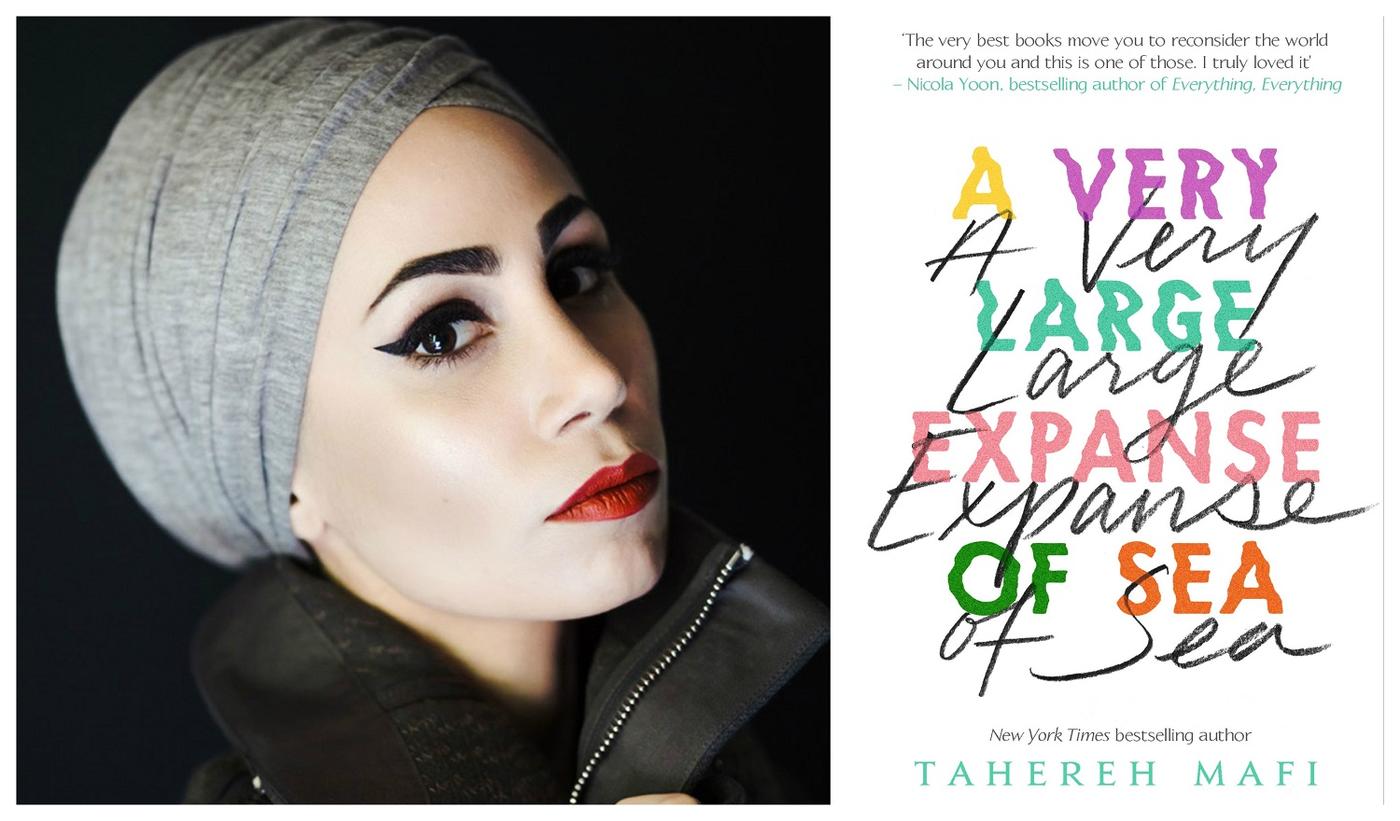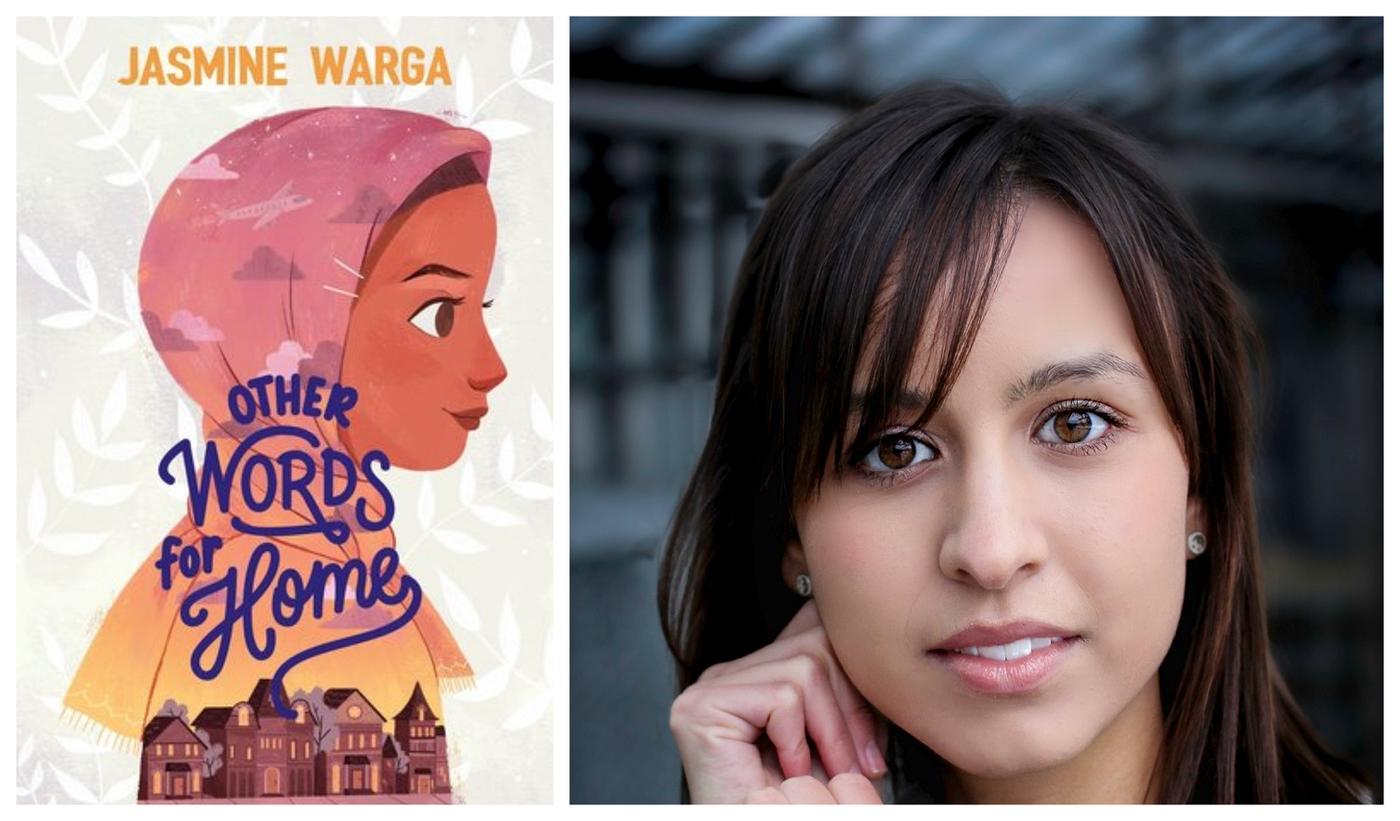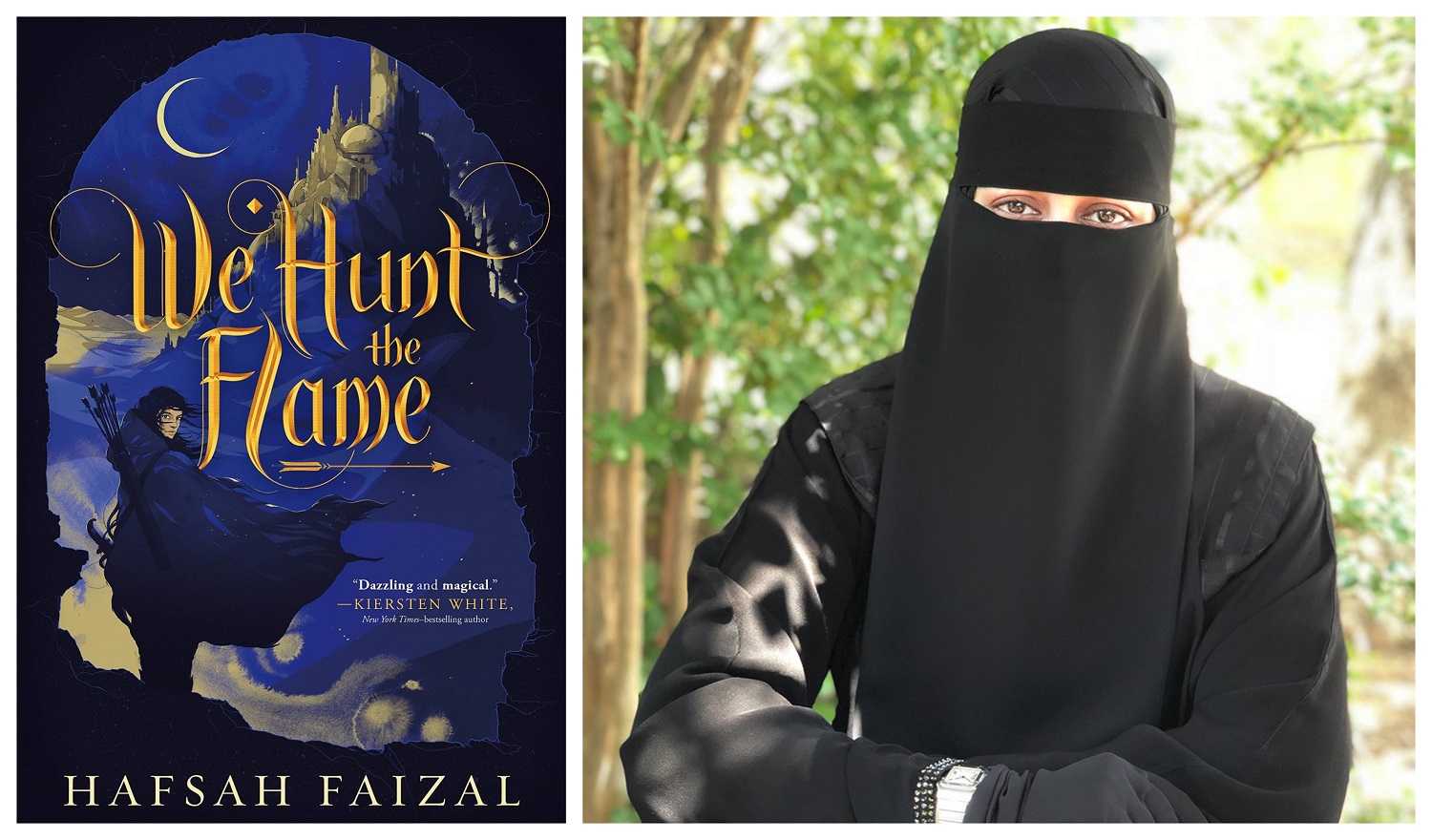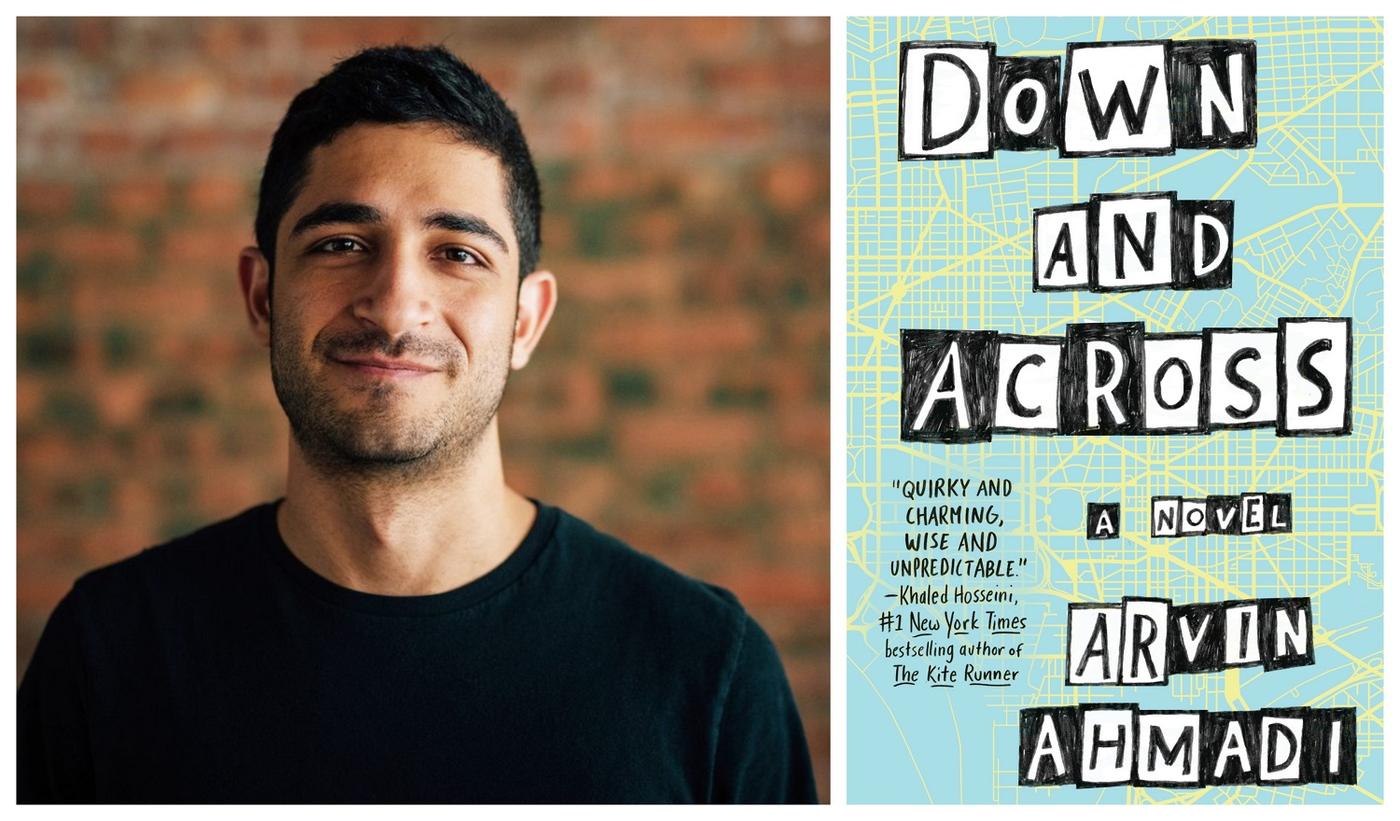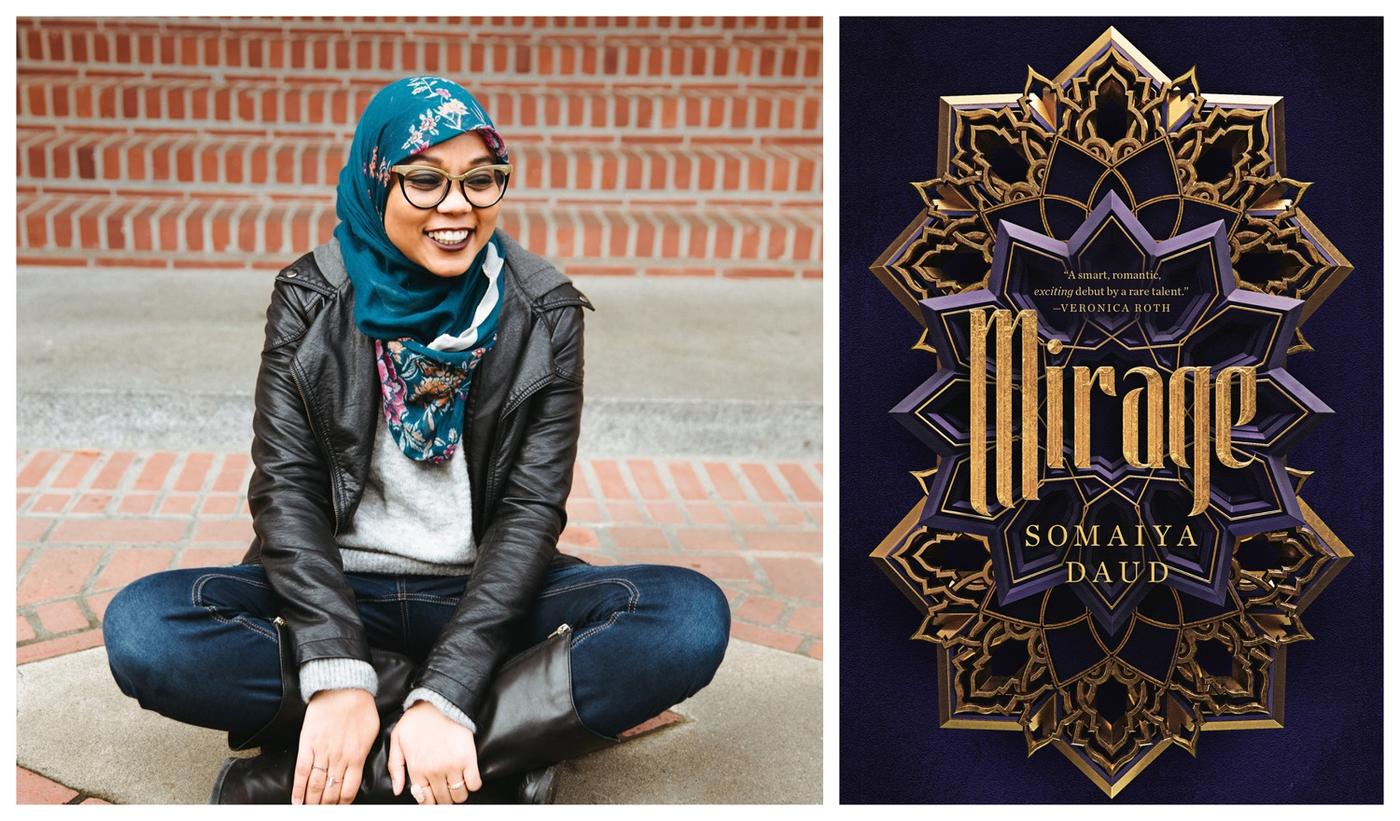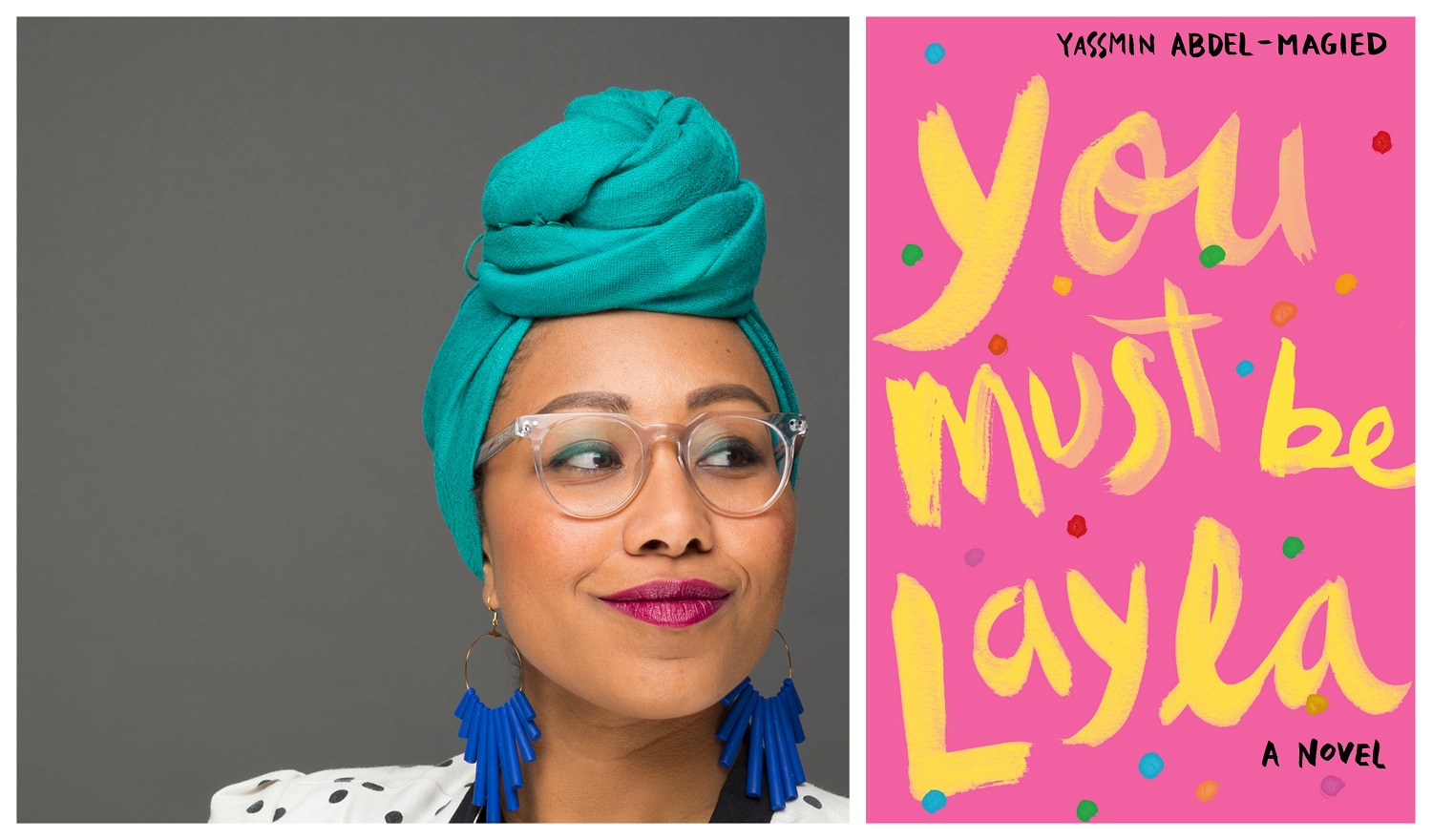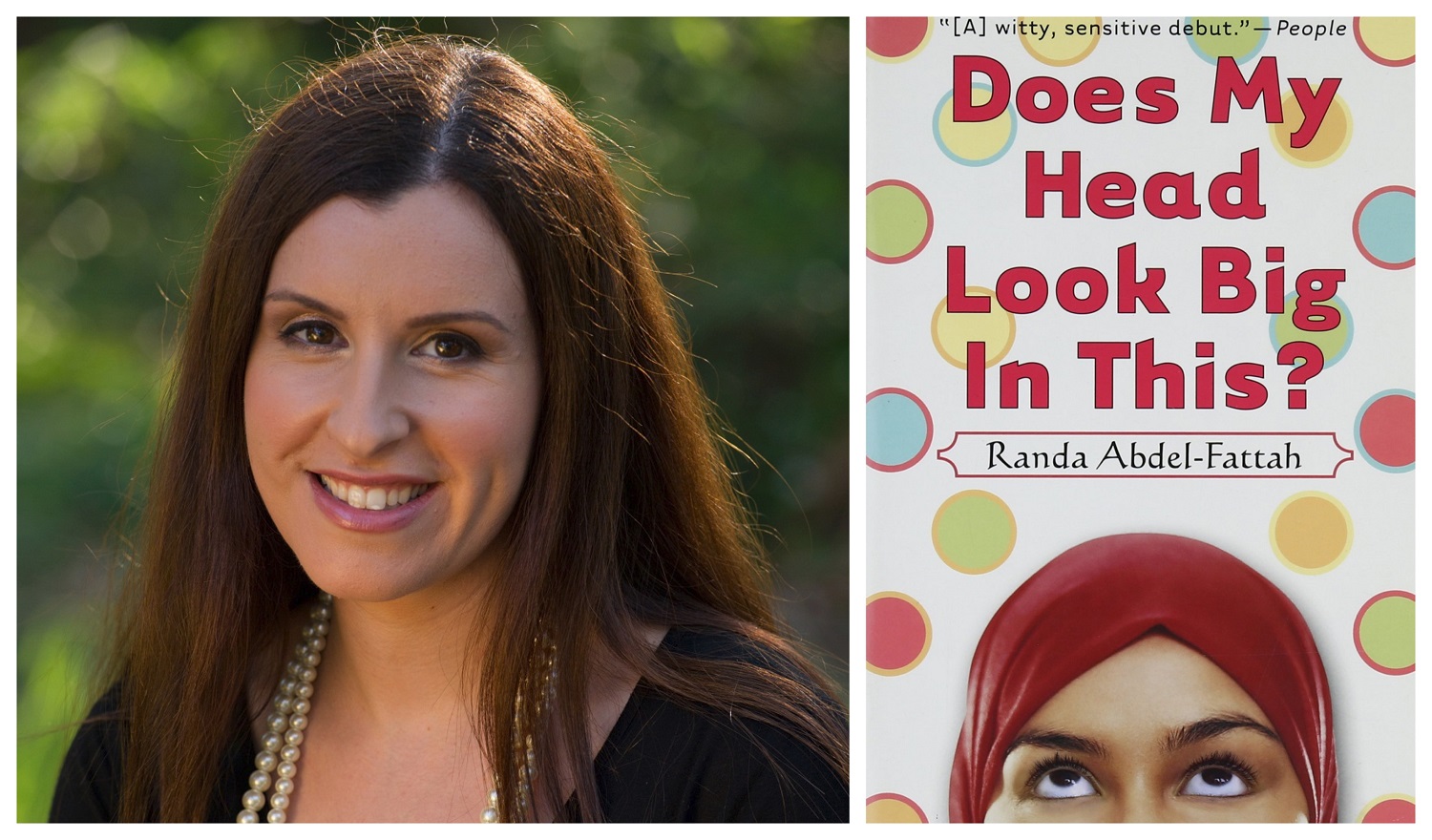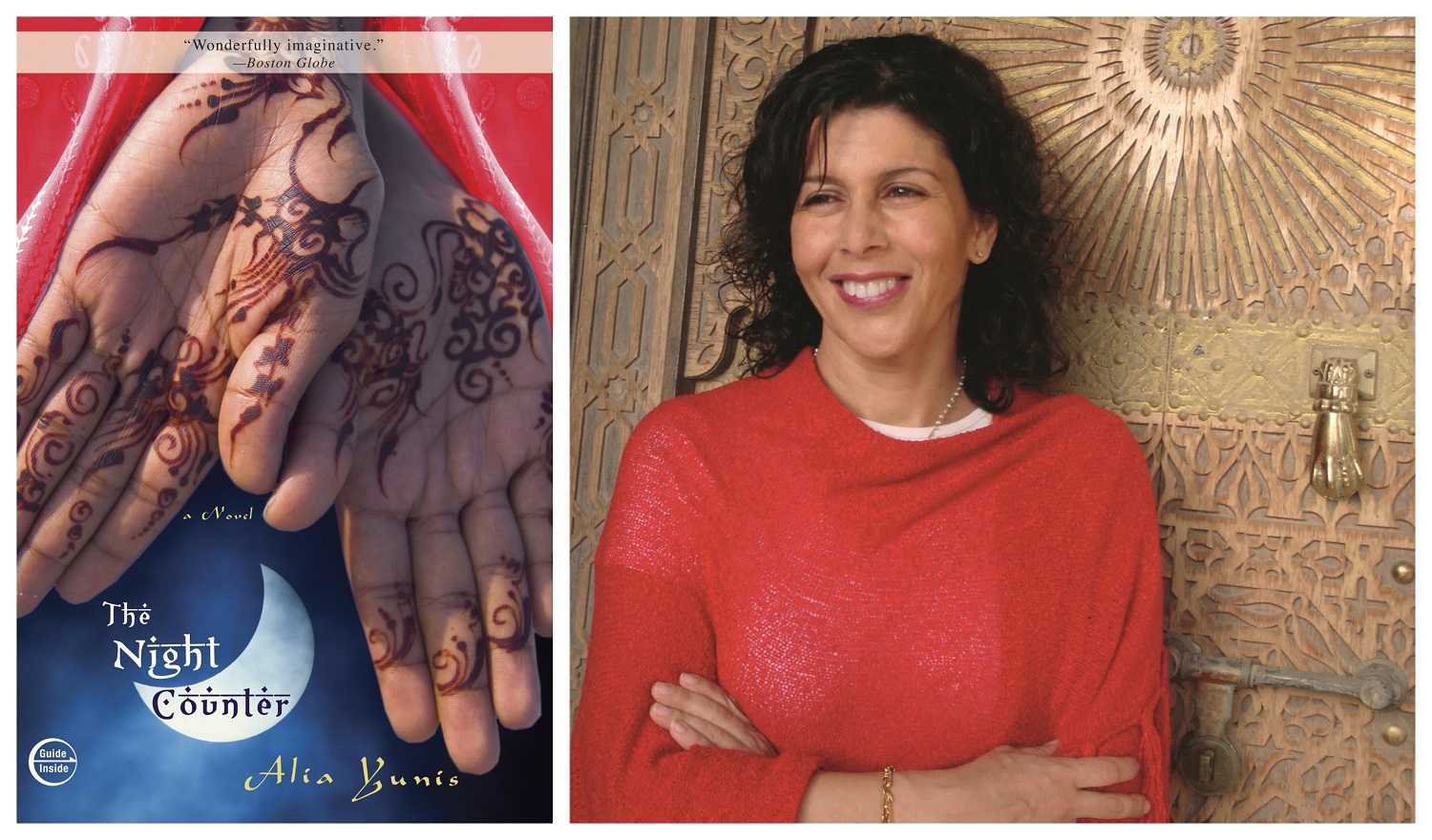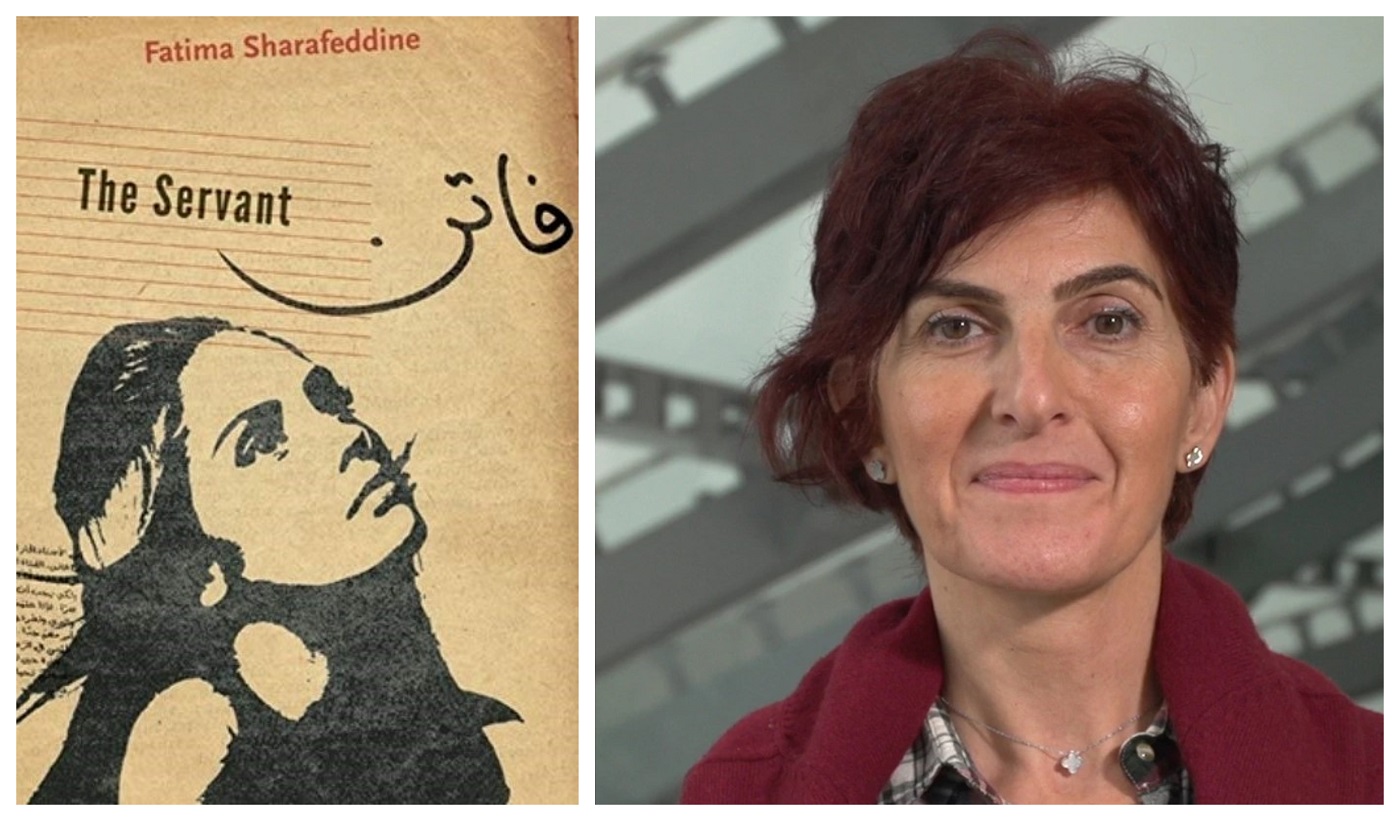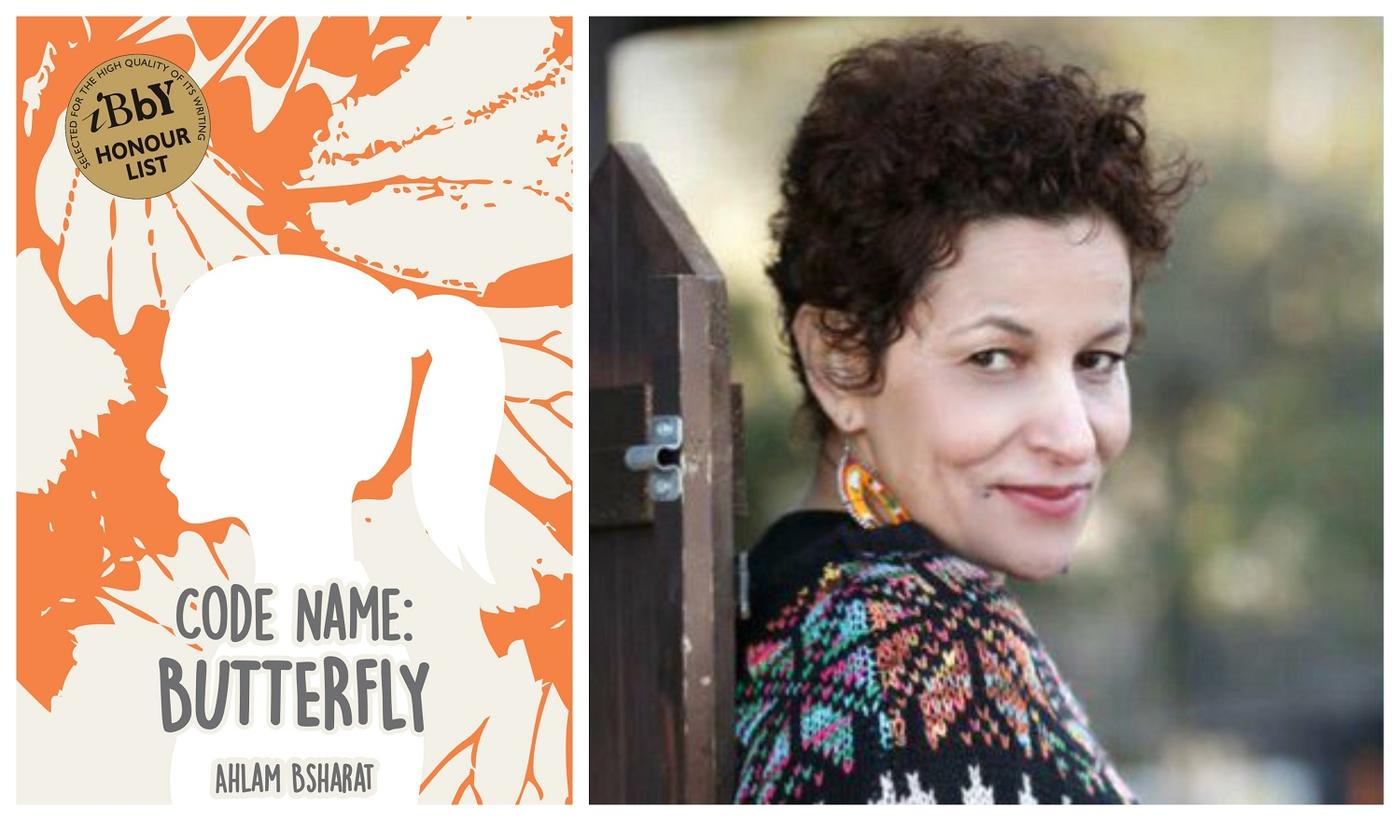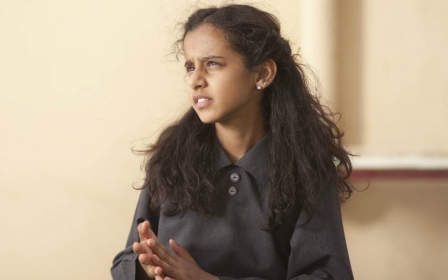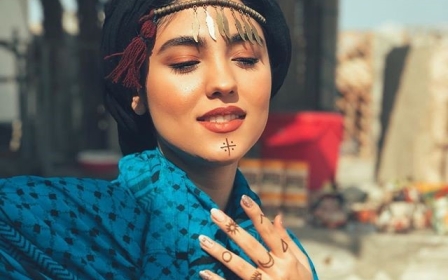The best YA books: 10 Middle East authors worth reading
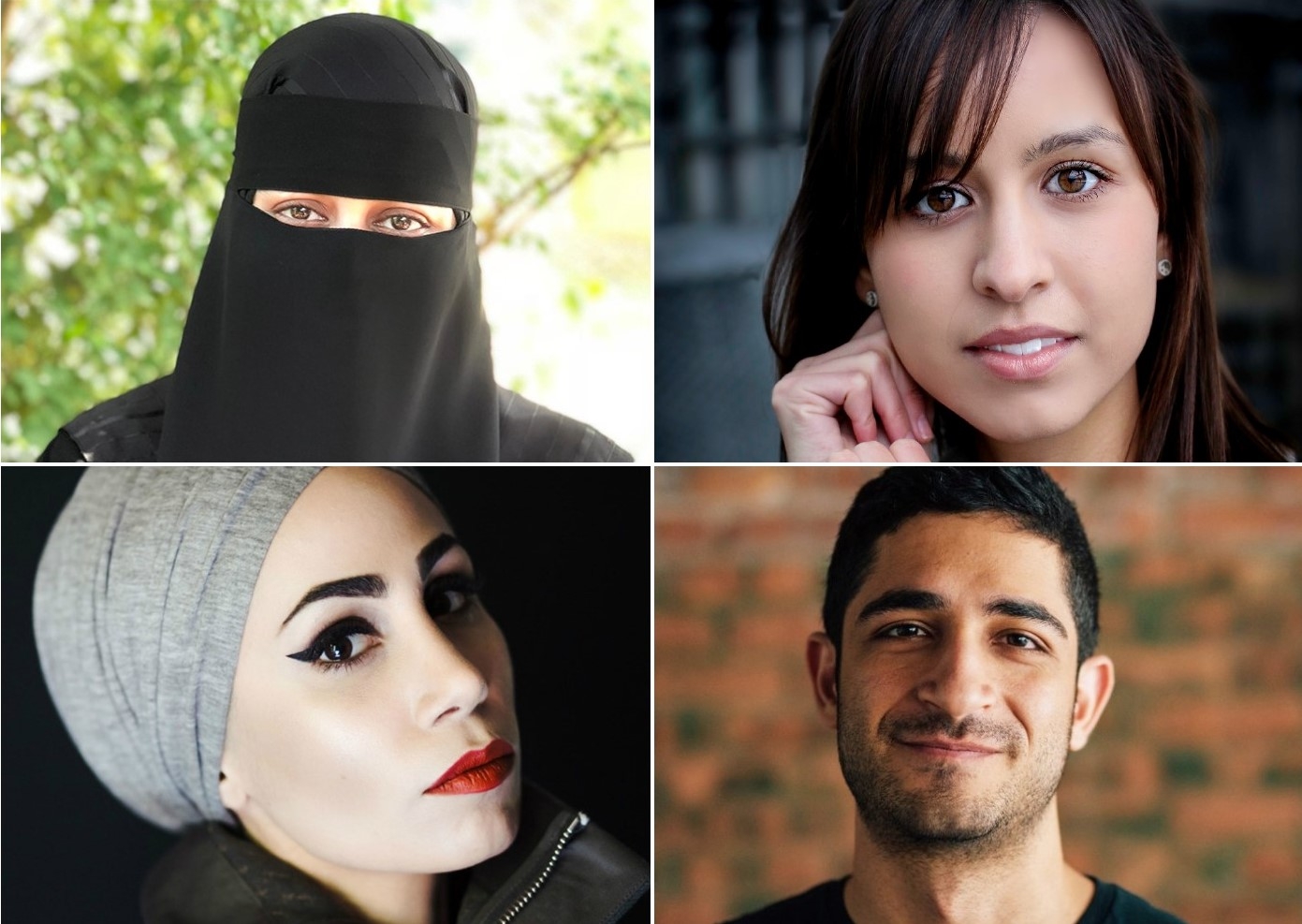
Long gone are the days when teens and tweens from the Middle East, North Africa and elsewhere could not read about fictional characters who looked, spoke and ate like them.
The last decades have seen an explosion in young adult (YA) fiction - and writers from the region and related diaspora, such as Yassmin Abdel-Magied and Somaiya Daud, below, have not missed the memo.
But focusing on adolescent protagonists and their experiences is hardly a new genre. Several literary classics can arguably be identified as precursors of YA, including Victorian novels Charles Dickens’ Oliver Twist (1837) and Lewis Carroll’s Alice’s Adventures In Wonderland (1865). Also see mid-20th century works including JD Salinger’s The Catcher In The Rye (1951) and William Goldman’s Lord Of The Flies (1954). They were written as adult novels but all have one thing in common: they feature adolescent protagonists trying to find their way in the world.
The genre began to emerge as a commercial publishing phenomenon during the 1970s and 1980s, seesawed in profitability for several years, then received a massive boost with the publication of the Harry Potter series from 1997 onwards.
New MEE newsletter: Jerusalem Dispatch
Sign up to get the latest insights and analysis on Israel-Palestine, alongside Turkey Unpacked and other MEE newsletters
Yet while YA fiction is usually marketed at youngsters aged 12 to 18, most readers are adults, drawn to coming-of-age stories that explore themes including romance, friendship, sexuality, identity and the supernatural. In the Middle East and North Africa, stories by YA authors have an additional edge, devoured as they are by readers who either want representation in the books they read, or to better understand the cultures of the region.
One of the earliest Arabic YA novels was Refuge by Samah Idriss, published in 2005 and based on his life during the Lebanese Civil War, which broke out in 1975 when he was 14. The country was in the middle of sectarian and political division but, as he later said, he was still able to experience all the things that teenagers usually go through.
Idriss, now editor of Al-Adab magazine, told the French National Library for Children: “I perceived many things, such as love, sexual desires, friendship, through the prism of war and politics. I still happen today to perceive them in the same way.”
Middle East conflict informs much contemporary YA fiction but it is not the only setting
The past two years have seen seen the publication of several especially striking YA novels. Walid Daqqa’s The Oil’s Secret Tale is about a boy who is helped by animals and an olive tree to visit his father in prison. Daqqa wrote the book behind bars: he was sentenced to life in prison in 1986 for helping plan an operation that ended in the death of an Israeli soldier. In 2018, The Oil’s Secret Tale won the Etisalat Award for Arabic Children’s Literature in the Young Adult category.
Middle East conflict informs much contemporary YA fiction, but it is not the only setting: other writers also tackle disapora experiences (many YA authors live outside the region), social issues and science-fiction and fantasy.
The writers and stories mentioned below are not in any order and just a starting point: please tell us who we’ve missed by tagging us on Twitter, Facebook and Instagram with some of your favourites.
1. Tahereh Mafi
If you read one book: A Very Large Expanse of Sea (2019), a novel following 16-year-old Shirin, a Muslim girl in the post-9/11 US who endures physical violence and verbal abuse because of her religion and hijab, and who struggles with her romantic relationship with a non-Muslim boy. Mafi has said the book, described as her most autobiographical work, will be adapted for film by the team behind Oscar-nominated Hidden Figures.
Background: Mafi is an Iranian-American author based in California. Both herself and her husband Ransom Riggs - author of Miss Peregrine’s Home for Peculiar Children - are New York Times bestseller writers.
Other work: She is best known for her Shatter Me series about Juliette, a 17-year-old girl haunted by her peculiar powers (it has also been adapted for TV). The final book in the series, Imagine Me, is set to be published in March 2020.
What she says: “I don’t only think about being Muslim and Middle Eastern all day every day. I didn’t want my identity to be tied to my struggle. People of color are more than just our struggle, we also laugh, we also love, we also have complex, fulfilling lives. That was important for me.” (Interview with the LA Times, February 2018)
What the critics say: “Stories of an American Hijabi remain few and far between, and Mafi’s thoughtful, personal, and powerfully emotional novel delivers a strong argument for why we need more.” - Entertainment Weekly on A Very Large Expanse of Sea
Insta: taherehmafi Twitter: @taherehmafi Site: taherehbooks
2. Jasmine Warga
If you read one book: Other Words for Home (2019) tells of Jude, a 12-year-old Syrian refugee who flees for Cincinnati in the US with her pregnant mother. Unusually, the story book is written in free verse rather than prose.
Background: Warga, who is Jordanian-American, comes from Ohio and now lives in Chicago with her family. As a child her favourite books included Charlotte’s Web, The Witches, and Anne of Green Gables: later inspirations include the works of Virginia Woolf, Zadie Smith and Sandra Cisneros. She began writing stories while she was teaching: her books have been published in more than 25 countries.
Other work: Warga first came to attention with the somewhat darker My Heart and Other Black Holes, about two teenagers planning their own suicides: the film rights have been sold to Paramount, which produced John Green's The Fault in Our Stars. Her second book, Here We Are Now, follows a 16-year-old whose famous father steps back into her life. Next up is a novel about the aftermath of a school shooting, tentatively titled The Shape of Thunder.
What she says: “I’ve always loved poetry and would always recommend prose writers read poetry to remember the beautiful things you can do with language.” (Interview with Publishers Weekly, May 2019)
What the critics say: “There are so many reasons to read this novel. It's a book about kindness, for one; it sings, for another, as any good verse novel should. Verse novels are coming into vogue, and Jude's voice is heightened by Warga's decision to write her story this way.”- NPR on Other Words for Home
Insta: jassiewarga Twitter: @jasminewarga Site: jasminewarga.com
3. Hafsah Faizal
If you read one book: We Hunt The Flame (2019) is set in a fictional kingdom inspired by ancient Arabia and its mythology. Its central character is Zafira, who goes on an adventure disguised as a man to return magic to her world and save it. In the United States, it has appeared on the New York Times Bestseller list and been featured as a pick for the Teen Vogue Book Club.
Background: Faizal, who identifies as Sri Lankan-Arab and is currently based in Texas, began blogging under the mantle of review site IceyBooks in 2010 when she was 17 (she has also run a web design company). Faizal told Bustle that, because she wears a niqab, she was initially nervous about reaction when her book deal was announced. But she says the positive response, especially from Muslim women, has gone beyond her expectations. "Seeing that someone else could do it makes them feel like they can. And I've actually seen a couple of people whose profile images were unveiled before, and then they're wearing the veil in the next one."
Other work: Faizal is now working on the sequel, We Free the Stars, set for release in May 2020.
What she says: "What if I could give readers like myself a book set in a version of Arabia that wasn’t fuelled by terrorism, twisted by forced marriage, or decorated with magical genies? A book where the heroine could be a girl who knows of bakhour and the difference between dates. Where the hero could be a boy who understands the beauty of the moon, who knows the feel of the language upon his tongue." (Interview with Tor, May 2019)
What the critics say: “An appealing spin on traditional fantasy elements.” - Kirkus on We Hunt the Flame
Insta: hafsahfaizal Twitter: @hafsahfaizal Site: hafsahfaizal.com
4. Arvin Ahmadi
If you read one book: Down and Across (2018) focuses on 16-year-old Scott Ferdowsi, who can never commit to anything (Ahmadi has said he is loosely based on himself). Eventually he heads for Washington where he becomes entangled with student and aspiring crossword creator Fiora Buchanan.
Background: Arvin Ahmadi, the US-based oldest son of Iranian immigrants, is one of the few male YA authors among the Middle Eastern diaspora.
Other work: Girl Gone Viral is a sci-fi mystery about Opal Hopper, a female teen coder, who enters a virtual-reality contest to discover the fate of her father.
What he says: “I started writing it my senior year of college after I watched this TED talk about grit that really put into words what I’d been struggling with. I thought maybe my problem was grit... So I got gritty and wrote a book about a boy who runs away from home to figure out who he is.” (Interview with Angie Thomas, The Hate U Give author, for EW, August 2017)
What the critics say: “Although the book’s female characters sometimes seem less developed than their male counterparts, this humorous, deeply human coming-of-age story will connect with teens who, like Scott, may wonder if a well-lived life is 'less about grit and more about the journey.'” - Washington Post on Down And Across
Insta: arvinahmadi Twitter: @arvinahmadi Site: arvinahmadi.com
5. Somaiya Daud
If you read one book: Mirage (2018), in which protagonist, Amani, a 16-year-old girl, is kidnapped and groomed by the ‘Vathek’ empire regime, who occupy her home planet of Cadiz. It has earned strong notices from other YA writers including Veronica Roth (Divergent) who said that “Somaiya Daud is a rare talent”.
Background: Somaiya Daud, who is American-Moroccan, was born in the Midwest. She has worked as a bookseller, has a degree in English literature and is now pursuing a doctoral degree, including teaching, on the West Coast. Daud is of Amazigh descent and her fantasy book is inspired by that heritage.
Other work: Mirage is Daud's first book.
What she says: "Our default for progressive science fiction is a Westernized future. Brown people hold on to their traditions. They’re not going to modernize by becoming Western. They’re going to modernize by taking their cultures and practices forward. So what does that look like?" (Interview with OPB, December 2018)
What the critics say: “A refreshing and unique coming-of-age story... a beautiful and necessary meditation on finding strength in one’s culture” - Entertainment Weekly on Mirage
Insta: somaiiiya Twitter: @somaiyadaud Site: somaiyabooks.com
6. Yassmin Abdel-Magied
If you read one book: You Must Be Layla (2019) is the Australian-Sudanese writer’s first YA novel. Its main character is Layla, a young inventor who struggles to navigate life as a Muslim in her new school. Abdel-Magied based the story on her own experiences of Islamophobia.
Background: Abdel-Magied began her career as a mechanical engineer on oil and gas rigs across Australia. She then moved into full-time broadcasting and writing. She is based in London.
Other work: Her first book was the memoir Yassmin's Story. Aside from her YA work, Abdel-Magied has also given TED Talks, contributed to non-fiction anthologies and filed opinion pieces for The Guardian, Teen Vogue and The New York Times, among others.
What she says: “There are essences of me in Layla but this story itself is definitely hers. I realised that I was using fiction to process the trauma of an Islamophobic society. This is why we need those stories.” (Interview with Metro, April 2019)
What the critics say: “There's no doubting the significance of readers being able to see themselves in the stories they read and – with Layla's family life and Sudanese culture, in an Aussie context, a focal point – many readers who don't often see themselves reflected, will here.” - Sydney Morning Herald on You Must Be Layla
Insta: assmin_a Twitter: @yassmin_a Site: yassminam.com
7. Randa Abdel-Fattah
If you read one book: Does My Head Look Big in This (2005) is about Amal, a 16-year-old Muslim girl who starts wearing a headscarf, and the challenges she subsequently faces. It won the Australian Industry Book Award for Best Australian Book for Young Adult Readers in 2006.
Background: Egyptian-Palestinian-Australian Abdel-Fattah practised as a litigation lawyer until 2012 before moving into academia, where her research includes Islamophobia. She is a human rights activist and has written opinion pieces for The Sydney Morning Herald, The Age and New Matilda, among others.
Other work: Abdel-Fattah has published 11 novels in more than a dozen countries: some, such as No Sex in the City, feature older protagonists than Does My Head.
What she says: “As a writer, I invite readers to suspend their judgments and prejudices and enter the lifeworlds of the misunderstood, the misrepresented, the mistreated. There is nothing so personal as that. It requires trust and courage on the part of my readers.” (Interview with Words Wthout Borders, May 2015)
What the critics say: “Using a winning mix of humor and sensitivity, Abdel-Fattah ably demonstrates that her heroine is, at heart, a teen like any other.” - Publishers Weekly on Does My Head...
Twitter: @RandaAFattah Site: randaabdelfattah.com
8. Alia Yunis
If you read one book: The Night Counter (2010), based on The Arabian Nights, and set in post-9/11 LA, follows 85-year-old Fatimah Abdullah as she approaches the last nine days of her life and tries to carry out her final duties - including finding her gay grandson a wife and teaching birth control to her great-grand daughter. It was praised by authors including Laila Lalami and made several summer read lists.
Background: Yunis travelled the world during childhood as the daughter of a UN environmental engineer, living in Greece, Lebanon and Iraq among others. She has worked as a screenwriter, journalist and academic with a focus on film.
Other work: Yunis produced and directed The Golden Harvest (2019), a documentary about the Mediterranean's love affair with olive oil. Her writing has also appeared in the Los Angeles Times, AramcoWorld and Saveur.
What she says: “I never wrote about Arab Americans before. So many books and films about them are about terrorists or young people being recruited, but that didn't interest me and it's not representative of the community at large. There's a whole world of Arab-American people who aren't of that mindset.” (Interview with The National, August 2009)
What the critics say: “Wonderfully imaginative… poignant, hilarious… The branches of this family tree support four generations of achievement, assimilation, disappointment, and dysfunction.…Their stories form an affectionate, amusing, intensely human portrait of one family.” - Boston Globe on The Night Counter
Insta: eat_the_write_film Twitter: @aliayunis Site: aliayunis.com
9. Fatima Sharafeddine
If you read one book: The Servant (2010), about 15-year-old Faten, who is forced to leave her village school to become a maid in Beirut but is determined to follow her dream and study in secret to become a nurse. It won the Beirut International Book Fair’s Best Book award in 2010.
Background: Lebanese writer Fatima Sharafeddine, like Idriss came of age during the Lebanese Civil War. After she married she moved to the US in the late 1980s, living in Ohio and Texas. She now lives in Brussels with her family where she works as a writer and translator (she translated The Servant from Arabic to English herself).
Other work: Besides poverty, Sharafeddine has also turned her attention to war, such as Fi Medinati Harb (translated into French as Chez Moi C’est La Guerre). She is also known for Ghadi and Rawan (2013, translated in 2019 by Sawad Hussein and M. Lynx Qualey), a collaboration with writer Samar Mahfouz Barrage about a boy in Belgium and his childhood friend in Lebanon; and Cappuccino (2017), about 17-year-olds Anas and Lina and their family secrets (it took the Etisalat Award for Arabic Children's Literature).
What she says: “I have been living in Europe for the last ten years, where my children go to school. I would talk to my friends about my story of the war, and everybody would say, ‘Yeah yeah, that was a long time ago.’ So I felt I needed to clarify it to them, that actually there are children who still live in countries where there is occupation or war, where they are scared from bombings, from death, on a daily basis.” (Interview with Literature Across Frontiers, May 2013)
What the critics say: “Fans of literary and historical fiction will be drawn to this rich portrayal of the challenges faced and opportunities forged by brave young women in patriarchal, war-torn Lebanon.” - Kirkus on The Servant
Twitter: @fatimawriter Site: fatimasharafeddine.com
10. Ahlam Bsharat
If you read one book: Code Name: Butterfly (2016, translated by Nancy Roberts) describes what it’s like to grow up under the occupation of Palestine. Butterfly, the story’s 14-year-old protagonist, experiences the same issues as teenagers the world over - but her situation forces her to question everything around her, including whether her father is working for the Israelis. It was shortlisted for the Palestine Book Awards.
Background: Bsharat was raised in Tammun in the north-east of the West Bank and now lives in Ramallah. Aside from YA books, she is also known for her poems, short stories and script work, including for the Palestinian ministry of culture.
Other work: Trees for the Absentees - about a Palestinian student reflecting on loss as she approaches adulthood - will be published in September in English (translated by Ruth Ahmedzai Kemp and Sue Copeland).
What she says: “My Young Adult novels are filled with questions. I always describe myself as a person who loves the questions more than I love the answers. I try to account for this passion, as I don’t understand where it stems from. At times I think: maybe I am driven to ask these questions because I was born in a place and a time full of questions and not enough answers.” (YouTube appearance, February 2017)
What the critics say: “The book’s questions strip not just Butterfly of certainty but also the reader, making it a valuable read for a teen or adult.” - The National on Code Name: Butterfly
Twitter: @ahlambsharaa Site: neemtreepress.com/ahlam-bsharat/
Copyright for author photos: Pan Macmillan, aliayunis.com, fatimasharafeddine.com, twitter.com/ahlambsharaa, somaiyabooks.com, arvinahmadi.com, yassminam.com, hafsahfaizal.com, jasminewarga.com, taherehbooks.com
Middle East Eye delivers independent and unrivalled coverage and analysis of the Middle East, North Africa and beyond. To learn more about republishing this content and the associated fees, please fill out this form. More about MEE can be found here.


